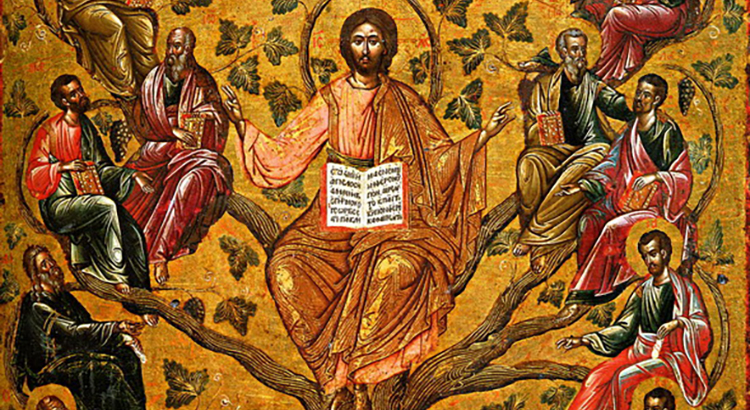Holy Wednesday
Holy Wednesday
Reading of the Word of God
Praise to you, o Lord, King of eternal glory
If we die with him, we shall live with him,
if with him we endure, with him we shall reign.
Praise to you, o Lord, King of eternal glory
Matthew 26,14-25
Then one of the Twelve, the man called Judas Iscariot, went to the chief priests and said, 'What are you prepared to give me if I hand him over to you?' They paid him thirty silver pieces, and from then onwards he began to look for an opportunity to betray him. Now on the first day of Unleavened Bread the disciples came to Jesus to say, 'Where do you want us to make the preparations for you to eat the Passover?' He said, 'Go to a certain man in the city and say to him, "The Master says: My time is near. It is at your house that I am keeping Passover with my disciples." ' The disciples did what Jesus told them and prepared the Passover. When evening came he was at table with the Twelve. And while they were eating he said, 'In truth I tell you, one of you is about to betray me.' They were greatly distressed and started asking him in turn, 'Not me, Lord, surely?' He answered, 'Someone who has dipped his hand into the dish with me will betray me. The Son of man is going to his fate, as the scriptures say he will, but alas for that man by whom the Son of man is betrayed! Better for that man if he had never been born!' Judas, who was to betray him, asked in his turn, 'Not me, Rabbi, surely?' Jesus answered, 'It is you who say it.'
Praise to you, o Lord, King of eternal glory
If we die with him, we shall live with him,
if with him we endure, with him we shall reign.
Praise to you, o Lord, King of eternal glory
The story of Judas's betrayal always gives rise to feelings of pain and bewilderment. Judas goes as far as selling his teacher for thirty pieces of silver (the price of a slave's ransom). How bitter are the words that begin the passage of the Gospel we heard today: "One of the twelve!" Yes, one of his closest friends. Jesus had chosen him, loved him, and taken care of him. He had defended him from the attacks of his enemies. And now he is the one who sells Jesus to his enemies. Judas fell into the seduction of wealth. The distance between him and the Teacher grew until he conceived the betrayal and then put it into practice. Jesus himself had said it clearly: "You cannot serve God and wealth" (Mt 6:24). Judas ended up preferring wealth. And he walked down that road. Jesus knew full well what awaited him: "My time is near." Jesus asked his disciples to prepare the Passover meal: a lamb dinner. With this decision, Jesus showed that in truth it is not Judas who "consigned" him to the priests. Jesus himself "consigned" himself to death out of love for all. The question about love that Jesus posed that evening continues to be asked of every disciple and of every man and woman. Jesus' passion has not ended. From every part of the world the demand for love arises mostly from the poor, the weak, and the excluded. We all need to distance ourselves from the instinct to betray, which is in the heart of everyone. Judas also that evening, to hide his feelings from the others, dared to say, "Surely not I, Rabbi?" Let us ask ourselves about our betrayals, not to be overwhelmed by them, but to bind ourselves all the more to Jesus who continues to take upon his shoulders the sins of the world.
